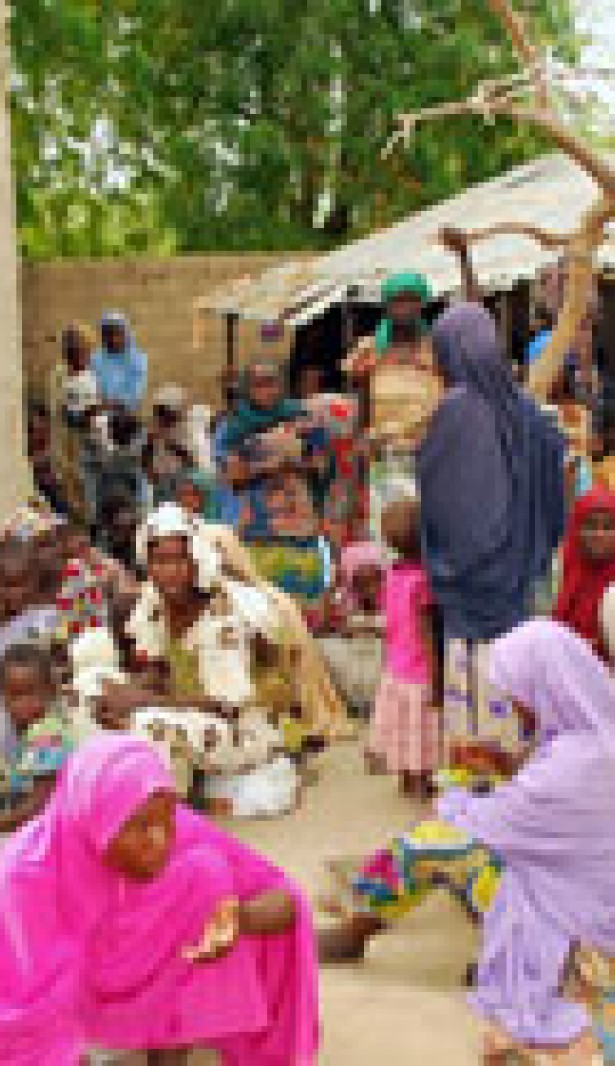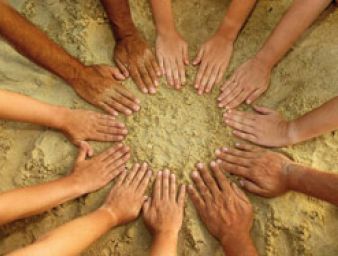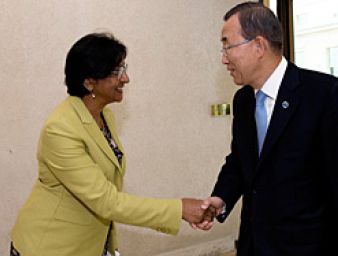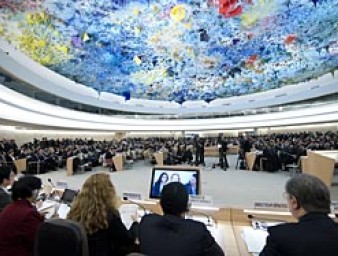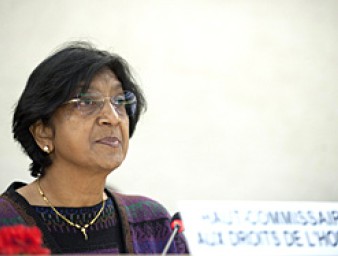Zeid to Human Rights Council: “Boko Haram retains capacity to cause significant harm”
04 July 2015
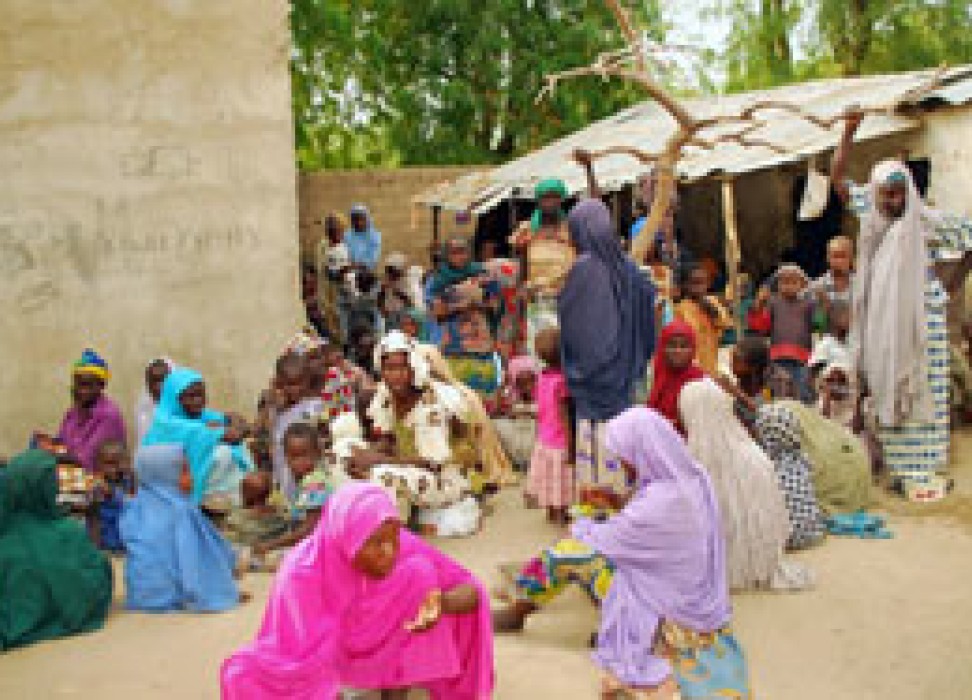
“Interviews by my staff with former captives and survivors of Boko Haram attacks in northeast Nigeria indicate a pattern of vicious and indiscriminate attacks stretching back months, and even years,” UN Human Rights Chief Zeid told the Human Rights Council.
Zeid was updating the Council on the findings of a team he deployed to the Lake Chad Basin region to document human rights abuses committed by the terrorist group in Cameroon, Chad and Niger over the past year.
He pointed out that in April 2015 alone, 40,000 people had been displaced by Boko Haram attacks on the Niger islands of Lake Chad, and had witnessed the vicious atrocities committed by the insurgent group.
Survivors interviewed described escaping massacres; the burning down of entire villages; the slaughter of people taking refuge in places of worship; torture and cruel and degrading treatment following sentences in ‘courts’; and abductions of boys for recruitment in their group, and of women and girls.
“OHCHR interviews have confirmed that during their captivity – lasting in many cases for months or even years – women and girls have been sexually enslaved, raped and forced into so-called ‘marriages’,” Zeid said. “Many survivors of these horrific experiences are now pregnant by their rapists.”
Destruction and displacement have impacted the economy of the region which traditionally produced enough crops to even trade across the Sahel. Zeid was concerned that the economic impact had been exacerbated by the security measures taken by that regional authorities to limit circulation of people, vehicles and goods on the grounds they may be intended for Boko Haram.
“[These security measures] have also generated understandable ill-feeling among the affected communities, and may ultimately contribute to support for Boko Haram,” Zeid said. “It is vital that in the conduct of their operations, the regional security forces refrain from adding to the suffering of the people.”
Zeid also expressed dismay at reports that former Boko Haram captives, including children, had been held by Cameroonian and Nigerian authorities, sometimes for lengthy periods, without charge. Other accounts indicated that returnees were also viewed with suspicion of complicity with the terrorist group by the local populations.
“I must insist on the need for greater attention to human rights by both the military and the police forces in concerned countries when carrying out security operations against Boko Haram,” Zeid said. “Protection of civilians must be a paramount concern in all military operations, with respect for the strict rules of engagement that protect human rights and international humanitarian law.”
Speaking as a concerned country, Cameroon said its policy was in full accordance with human rights: following the death of 25 persons in a prison cell in the far North region, perpetrators had been relieved of their duties. The detained children, whom that country identified as child soldiers, had been released.
Chad noted that Boko Haram was born in Nigeria but all countries of the Lake Chad Basin were now concerned. Thousands of Nigerian refugees had fled into Chad, and thousands of Chadians had been living and working in areas where Boko Haram was operating. Chad was on the frontline of combatting Boko Haram and had suffered a suicide attack in Ndjamena on June 15, in which over 100 people had been injured.
Niger said that with the support of numerous humanitarian agencies, the Government provided support to refugees and displaced persons, but more resources were needed for food, health care and sanitation. Niger added they had a legitimate right to start a war in order to protect themselves and their population from Boko Haram.
Nigeria said that cases of human rights violations will be investigated and prosecuted within the bounds of the Terrorism Prevention and other Related Offences Act.
3 July 2015
